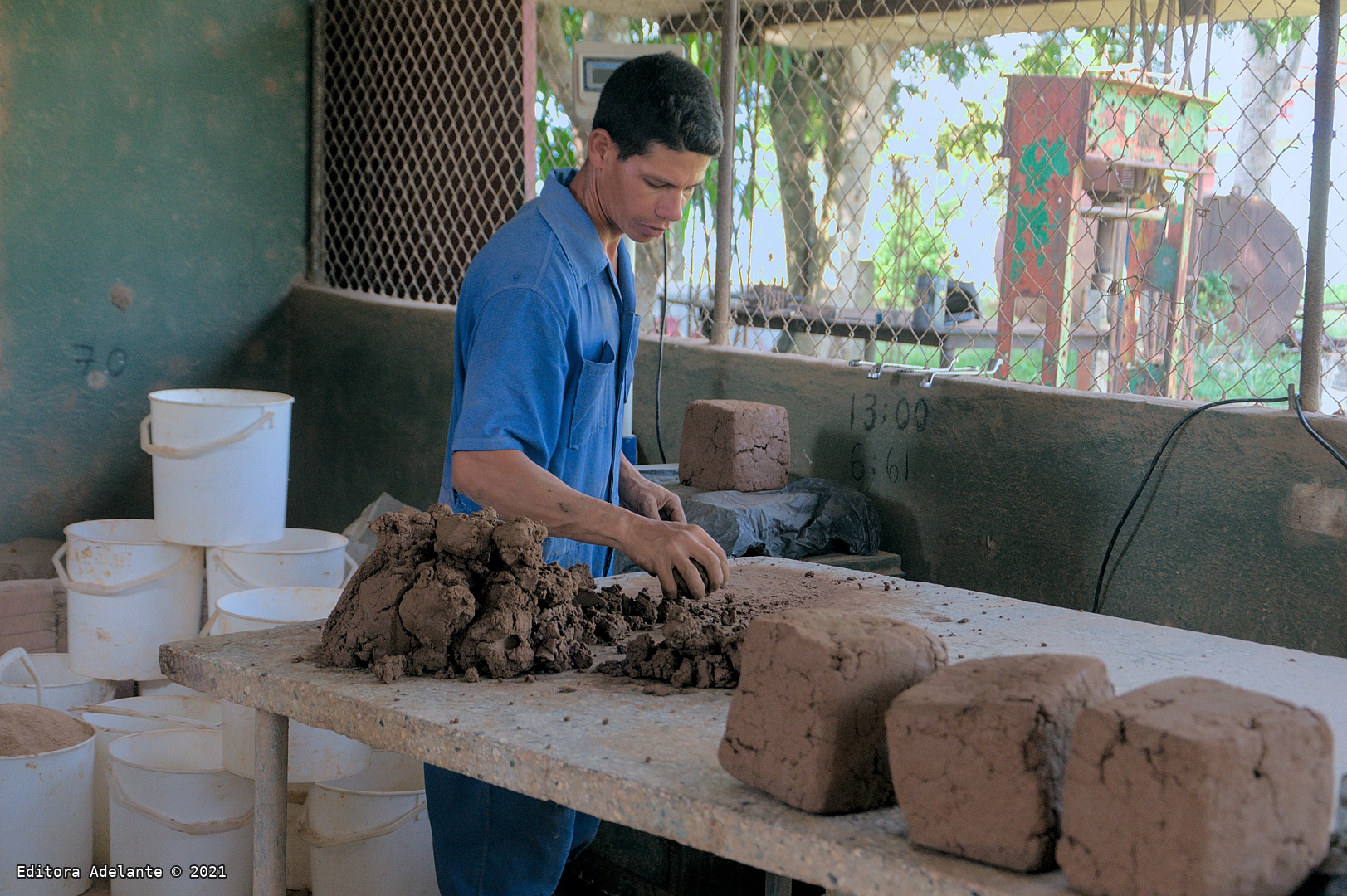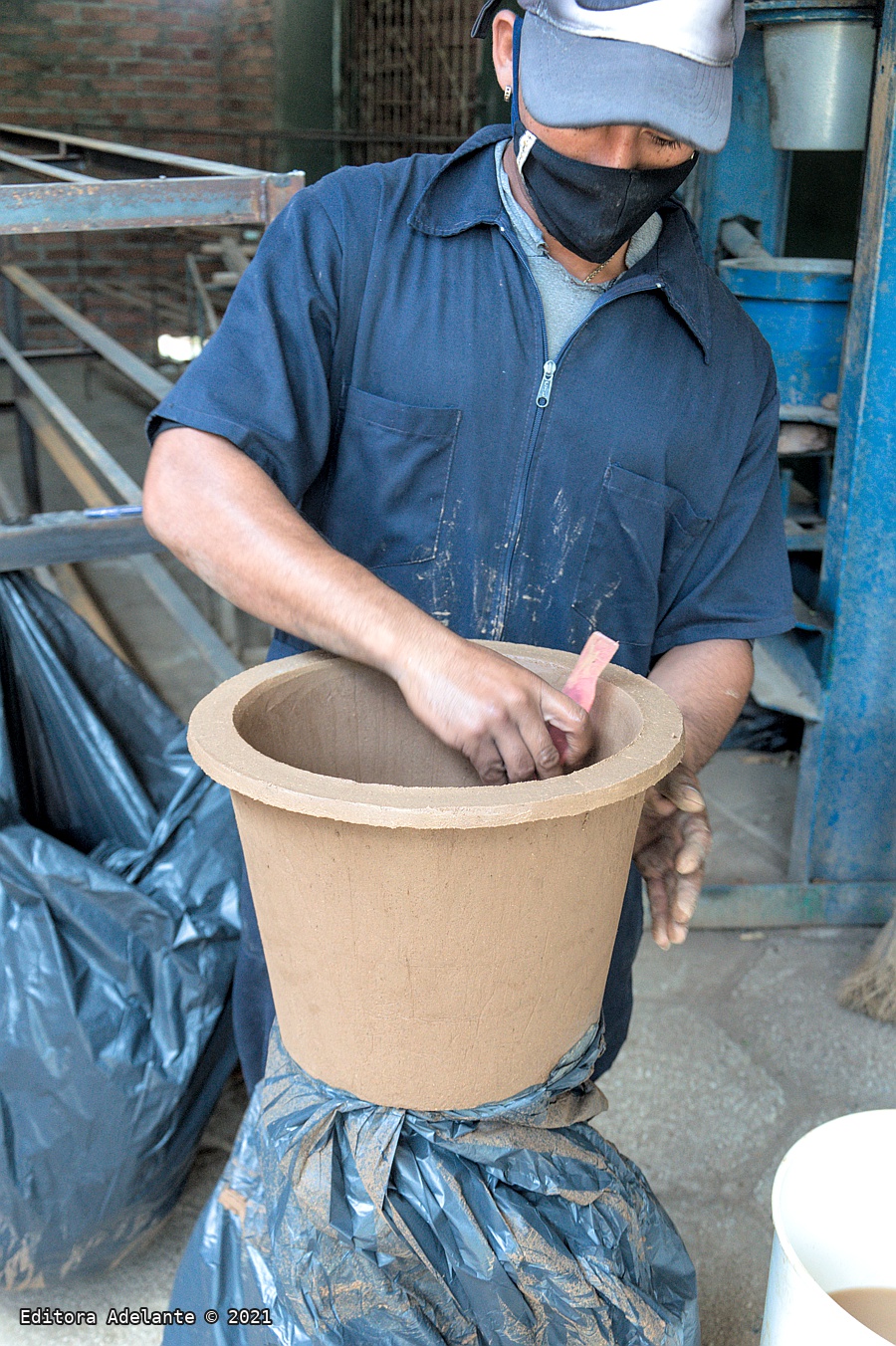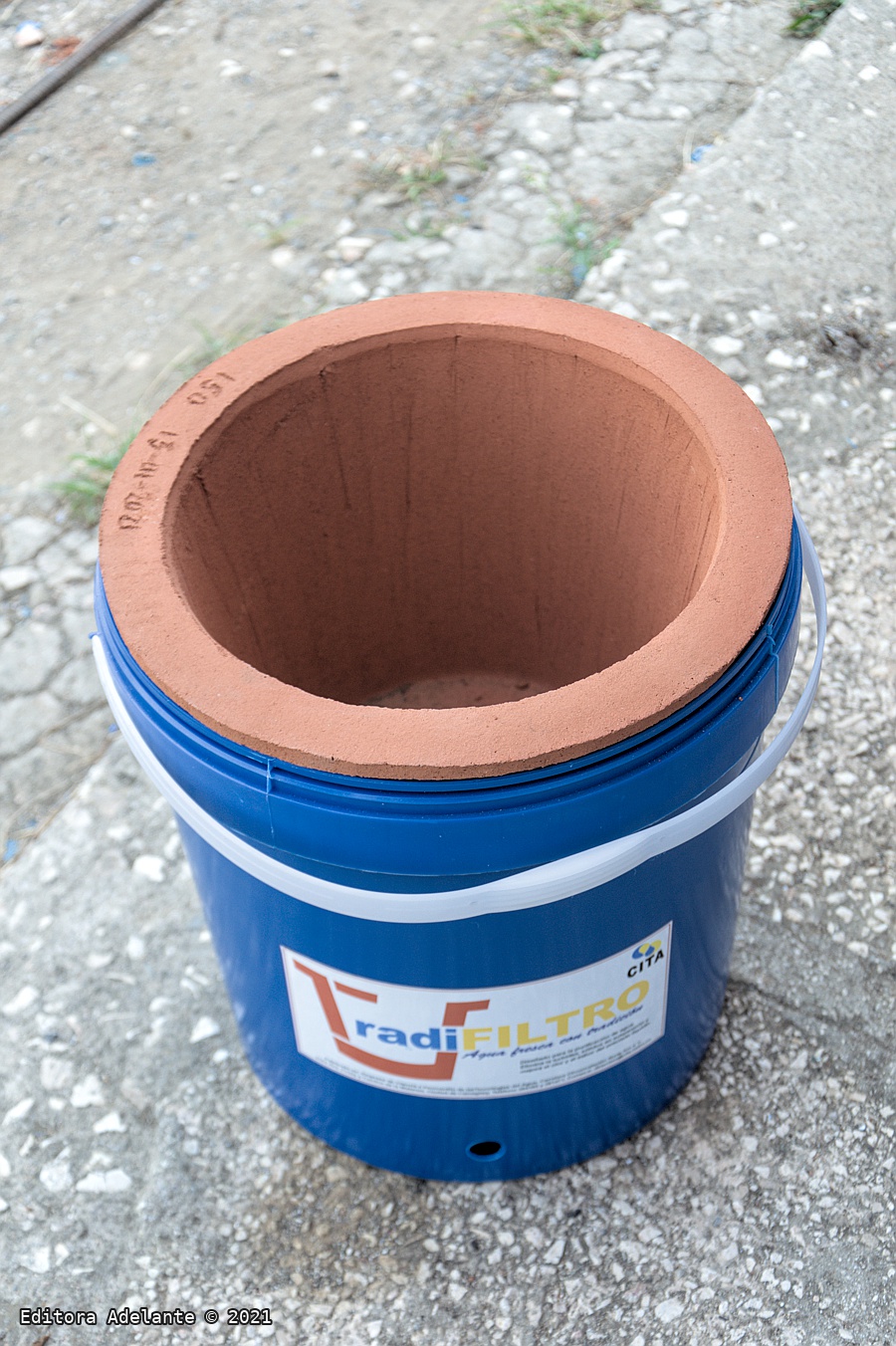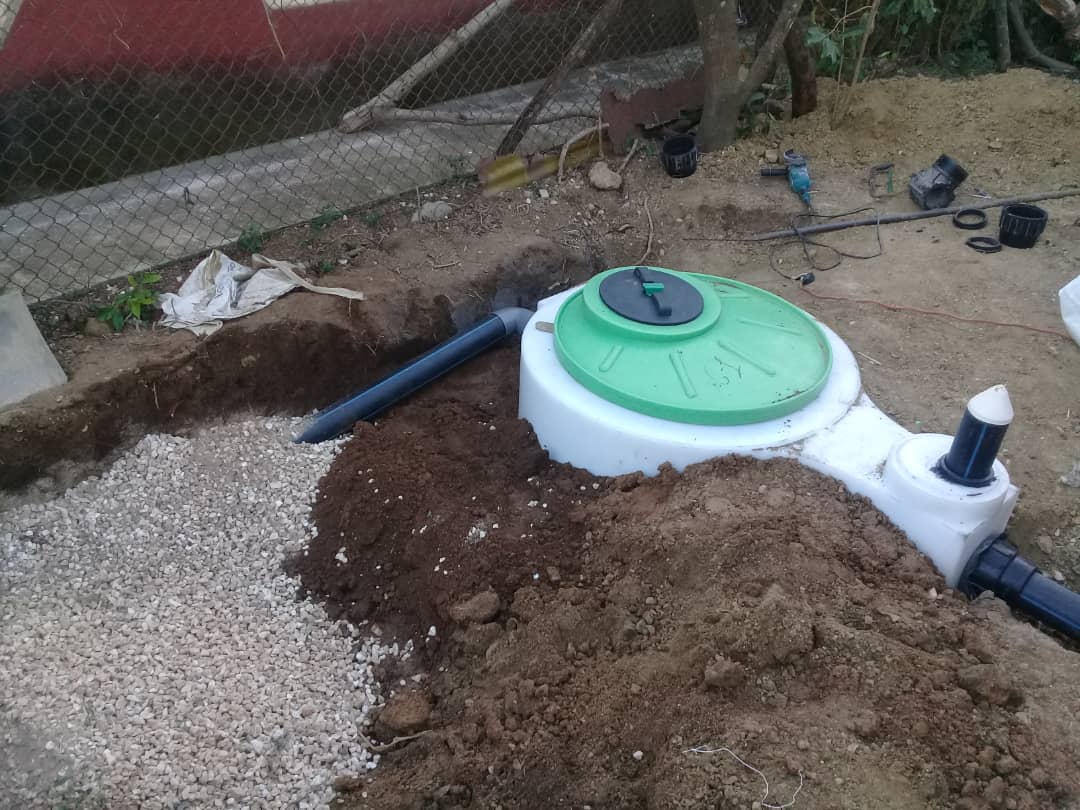CAMAGÜEY.- Several years ago, Héctor Moreno Guerra, known as Tico in the rice fields of the south of Camagüey, in the south of Jíbaro in Sancti Spíritus and even in Granma, attests to the quality of the ceramic filters built in the artisan factory of the Company of Science and Innovation of Water Technologies (Ecita).
Several people suffering from nephritic colic or other kidney ailments improved their health when workers from the Basic Unit of Cooperative Production Daniel Readigo, in the Laguna de Guano area, in the municipality of Vertientes, acquired said artifacts, which were even more effective than one imported with which they counted for the purification of the water.
People passing through kilometer 4 ½ of the North Ring Road, in the section between the Amalia Simoni hospital and the Tínima brewery, have no idea how much is being developed in favor of human well-being in the institution attached to the National Institute of Hydraulic Resources , and that assimilates the transfer of technologies, enriched with research and the construction of prototypes, brought into social practice.

COLLABORATION AS A SEAL
The history of the filters stems from a visit to Nicaragua by the engineer Leopoldo Gallardo Quiñones, who was the first director of the center, and the technician Amado Cepero Díaz. There they contacted a Belgian promoter of various technologies, including rope pumps, cowgirls, winches, windmills and hydraulic rams.
They also established ties with Ron Rivera, one of the creators of the ceramic filters, who represented the Organization for Peace Ceramics, dedicated to spreading this technology around the world, whose inventor was the Guatemalan Fernando Mazariego.
The current general director of Ecita, Master Pedro González Martínez explained that Ceramistas por la Paz has more than 50 factories in the world. Rivera's visit to Camagüey was the opportunity to take the first steps in assembling the technology, which was very rustic in its beginnings.
The idea conceived envisaged that Industrias Locales would assume the construction, which did not progress and was established in an area of the research center.
Vital in its development has been the collaboration of the Switzerland-Cuba organization. Their representatives showed interest in the project due to the benefits of filters for the purification of water on a family scale, mainly in rural areas, where this liquid is not always consumed with quality.

PRODUCE AND GROW
The small industry has delivered more than 5,000 filters to the population and educational institutions, with the expansion of its areas expected to increase from just over 400 units to 500 per month.
They have enough buckets and nylon, through a contract with the Santa Clara Industrial Military Company. Meanwhile, the one in Camagüey makes shelves where filters and a hammer mill are deposited to improve the one they have.
The Achilles heel lies in the availability of the keys due to difficulties in importing them, although contradictorily the accessory exists in Cimex stores, but as a state institution they cannot buy them in that market at a price of 50 pesos, in national currency.
Two types of clay are used in the execution of the ceramic filters, one near the tile of the El Porvenir neighborhood, in the city of Camagüey, and the second in the San Felipe plateau, both are mixed to ensure that the pieces do not crack in the drying process.
“We had a sawdust deficit, but in San Felipe there is enough and we bring it little by little with coverage until the middle of this year. Then we will look for an alternative to replace the pine with rice husks, although it is a more complicated process ”, stated González Martínez.
The five operators: Carlos Manuel Sánchez, Roilandi Cantillo, Lázaro Cabriada, José Vidal, and the brigade chief Saturnino Mendoza, are decisive, they all have command of the different work positions, under the tutelage of the civil engineer Raydel Vidal González, director of research, development and innovation of the entity, and the watchful eye of the quality specialist Yadira Ondarse, without underestimating the work of Héctor Galllo Miranda, in charge of the maintenance and repair of the factory's technology.
Although the objective is to exclude suspended particles, the ceramic piece is capable of neutralizing bacteria, eliminating the turbidity of the water, reducing calcium and magnesium in its content, not eliminating it. It does not need electricity to operate, it processes up to 36 liters per day and guarantees clean water for 24 months.
To extend the use value beyond two years, it is advisable to brush the ceramic filter, inside and out, every fifteen days, so that it does not lose its health-enhancing effect.
The collaboration project has been extended until 2023 due to COVID-19. The commercial license allows, after coordination, that anyone go to the center and buy the filter. The acceptance so far is valid, explained the manager. "Whoever tastes it does not want to drink another water."
25 YEARS AT THE SERVICE OF INNOVATION
 In the shadow of a mango bush and inside a trailer as a work cabinet, the integrated hydraulic resources center was born a quarter of a century ago, dedicated to the study of new technologies associated with water quality and at a later stage to promote the treatment of human waste that both affect the water table and pollute the environment.
In the shadow of a mango bush and inside a trailer as a work cabinet, the integrated hydraulic resources center was born a quarter of a century ago, dedicated to the study of new technologies associated with water quality and at a later stage to promote the treatment of human waste that both affect the water table and pollute the environment.
Twenty-five years are said to be easy, but for those dreamers of the beginnings the journey has been a real stimulus, to see the institution grow with a trained and multifaceted human capital and solid buildings, six cabins for the accommodation of twenty people, and workshops for the production of ceramic filters and machining parts.
In July 2019, the entity acquired the category of Water Technology Science and Innovation Company, the only institution registered with Citma as a development and innovation center of the National Institute of Hydraulic Resources in the country.
 "As fundamental specialized products we have hydraulic rams and ceramic filters registered with the Institute of Hygiene, Epidemiology and Microbiology of Water as a purifier for human consumption", added the general director.
"As fundamental specialized products we have hydraulic rams and ceramic filters registered with the Institute of Hygiene, Epidemiology and Microbiology of Water as a purifier for human consumption", added the general director.
In the case of the hydraulic ram, in multi-family buildings it raises the water to a fourth floor to replace an electric pump that saves 18 kilowatts of electricity per day and guarantees a stable service to its inhabitants.
To alleviate one of the problems that gravitates on soil contamination, the pits built without an adequate order, in Ecita they established two models of pits conceived in plastic and carried out experimentally for their validation. In addition, they are responsible for conducting feasibility studies and simplified sewer designs in suburban communities.
Translated by Linet Acuña Quilez)



